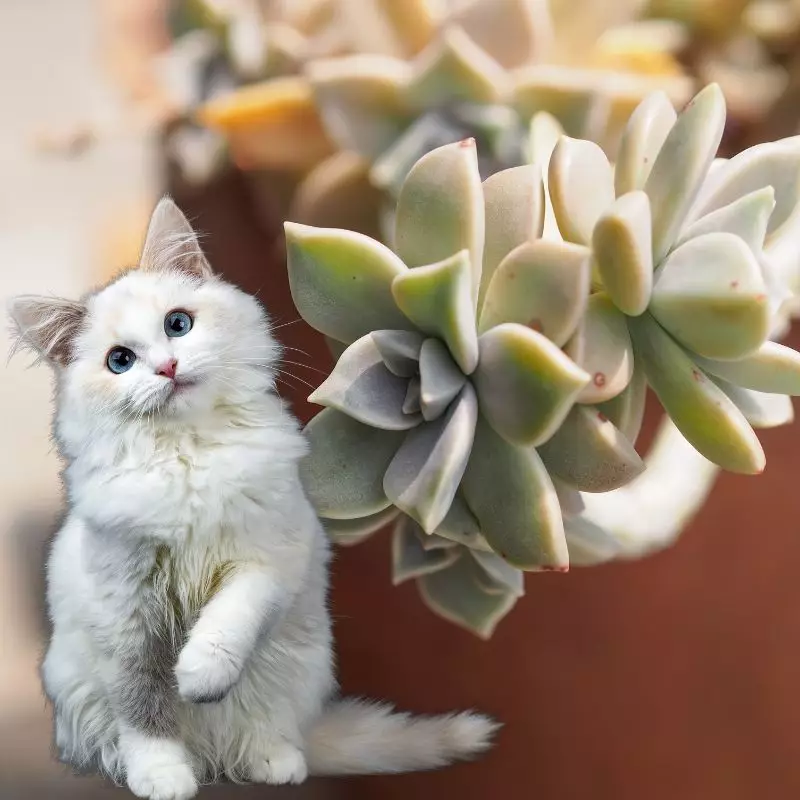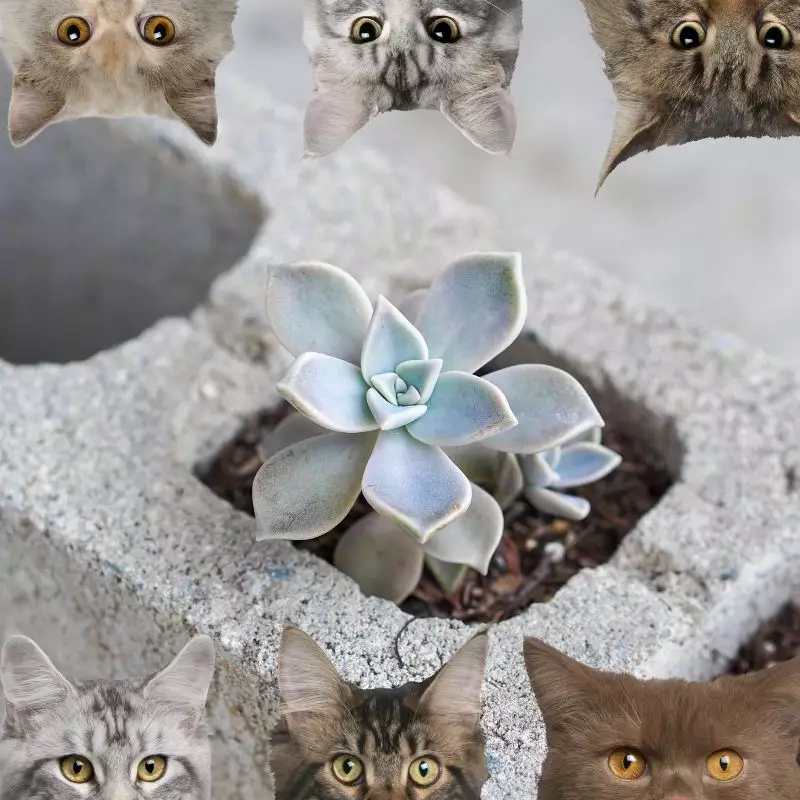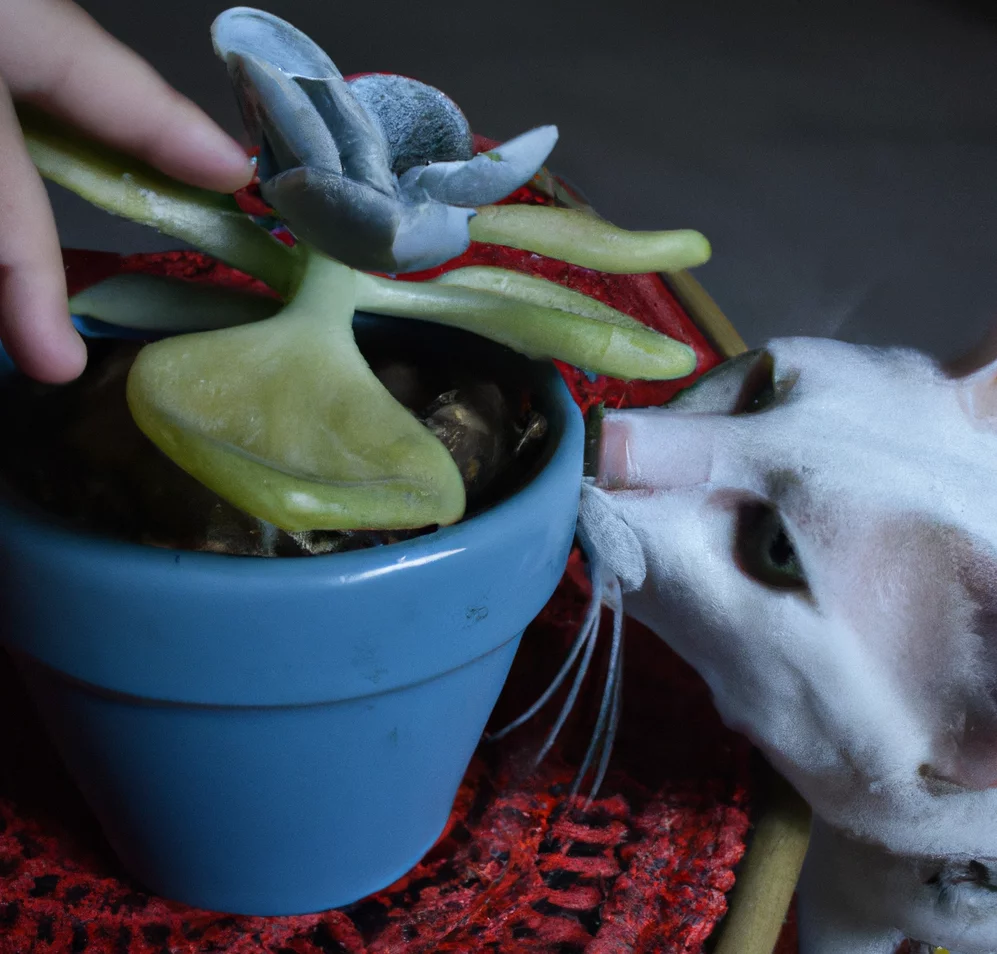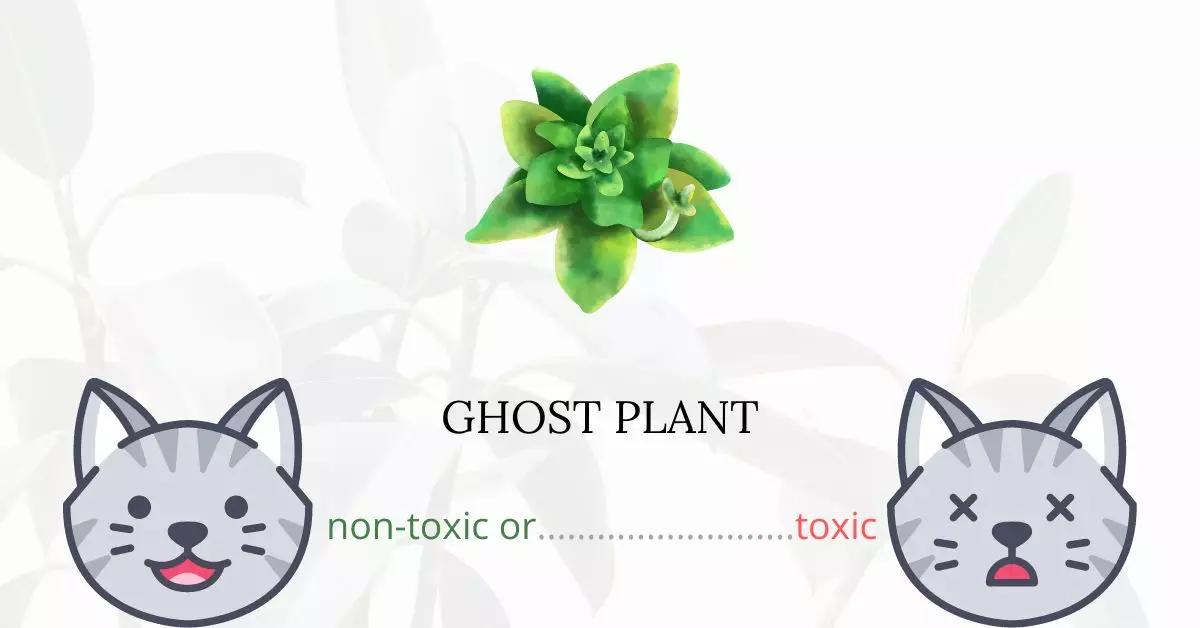No, the Ghost plant, also known as the “mother of pearl,” is not toxic to cats.
This article is the result of a collaboration with a team of experienced DVMs (doctors of veterinary medicine). Thanks to their expertise, we can provide accurate and up-to-date information on the potential risks associated with various plants, specifically in this case, the Ghost Plant. Furthermore, we have diligently researched high-authority websites, including the ASPCA and PetMD, to ensure the comprehensive nature of our findings.
It’s noteworthy to mention that the Ghost plant is indeed on the official list of non-toxic plants by The American Society for the Prevention of Cruelty to Animals (ASPCA).
Can Cats Eat Ghost Plant?

It’s almost certain that your cat won’t experience any problems if it consumes a ghost plant. It’s critical to keep in mind that “non-toxic” does not equate to “problem-free.” Since plants are not a regular part of certain animals’ diets, they may experience moderate stomach distress after consuming any kind of plant. Other plants may even have chemicals or pesticides on their leaves, which can further harm animals.
What is a Ghost Plant?

Ghost plants or Mother of pearl (Sedum Weinberg), is a kind of succulent in the Crassulaceae family. The low-growing plants have a height range of 15 to 31 centimeters and their sprawling, dense clumps of rosettes of leaves.
This succulent has grown naturally since ancient times in Tamaulipas, northeastern Mexico. In the past, the fleshy plants were grown as ornamentals in backyard gardens and used to make herbal remedies.
With time, Ghost plants were spread into Tamaulipas’ surrounding areas, particularly Texas, where the succulents flourished in hot, dry temperatures. The fleshy leaves of ghost plants form a tightly packed spiral rosette.
For use in cooking, leaves must be at least 5 to 6 centimeters long, 9 to 10 centimeters in diameter, and oblong in shape with a slight taper. The surface of ghost plants’ leaves is smooth, thin, and fragile, and the color can vary from gray-green to pale pink depending on the temperature. The leaves may have a flat to-pointed tip with a broad, spoon-like curve in the center.
Keeping Cats Away From Ghost Plant

The crunchy green leaves that almost beckon cats over are typically attracted to them. Because cats have a keen sense of smell, you can use that ability to deter them from damaging your plants.
Putting a lemon peel in the soil of your succulents will do wonders for deterring them because they can’t bear the smell of citrus. A cat will stay far away from the plant if cayenne pepper is lightly sprinkled around it.
Several non-toxic sprays are available that are made to deter cats from houseplants. A spray bottle with a solution of one part vinegar to three parts water could be used as an alternative.
Plants to Avoid For Your Cats
If you are a cat owner and unsure if the plants growing in your yard are harmful to your cats, check out this list of toxic plants for cats. You can also check our list of non-toxic plants for cats.





